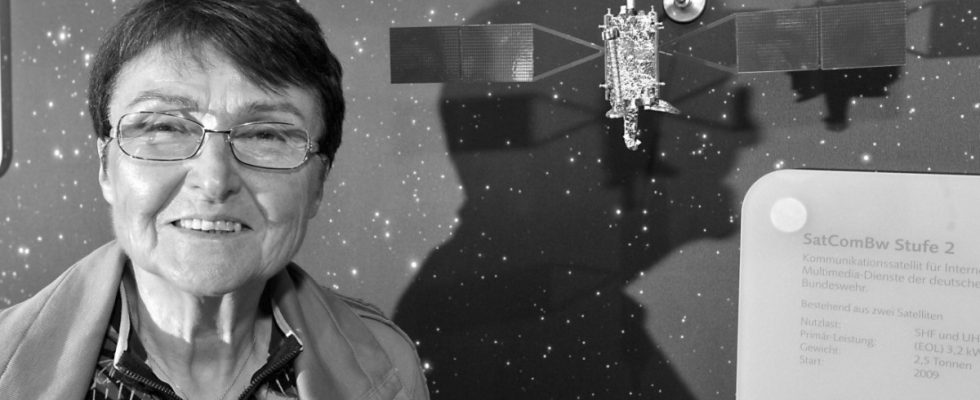In May 1971, the technically interested world looked to Ottobrunn: On a test track at Haidgraben, the prototype of the first magnetic levitation train from the Messerschmitt-Bölkow-Blohm (MBB) company proved the feasibility of a grandiose idea. The engineer Eveline Gottzein and her colleagues celebrated the successful public demonstration. Nothing seemed to stand in the way of implementing this cutting-edge technology at its development site. And yet there are still no trains of this type in Bavaria to this day, and Gottzein researched the technology for years, including as part of her doctoral thesis, the title of which was: “The magnetic wheel as an autonomous functional unit of modular support and guidance systems for magnetic railways”. Gottzein developed the basis for the Transrapid levitation system.
But the fast trains are being built elsewhere and the technology has been sold to Asia. This thought made her cry, Gottzein confessed in an interview in 2021, 50 years after the successful maiden voyage in Ottobrunn. If the scientist ever actually shed tears about it, it was probably in silence. It would have been so out of character for her to let her emotions overwhelm her in front of everyone or even to bury her head in the sand. She described herself as “tough” and “assertive” and she always was that throughout the years of her extraordinary career. These qualities led her to where she felt at home: in scientific research and teaching. Her credo: “You have to know what you want.”
Gottzein humbly viewed her career as a “happy coincidence”. In fact, things could have turned out differently, at least in the part of the world in which she grew up and at the politically uncertain time in which the course for her life was being set.
Gottzein was born in Leipzig in 1931. After graduating from high school in 1949, she trained as an electrical engineer at the telecommunications plant there. She would have liked to study immediately; her father, an engineer, was a role model for her, but this wish was initially denied to her. However, her good performance at work, mainly in the development laboratory, led her to study.
Shortly after her 80th birthday, she confessed to an SZ reporter with a mischievous smile that she had always been interested in pliers and screwdrivers. At that time, she received an honorary professorship at the Technical University of Munich (TUM), where she wrote her dissertation in a leading position alongside her job. However, Gottzein did not initially study in Bavaria, but rather studied electrical engineering, mathematics and physics at the Technical University in Dresden from 1952 to 1957. In 1957 she managed to escape to the West, where she resumed her studies in Darmstadt and was only able to graduate with a diploma in 1962.
During the semester break she worked at the computer company Electronic Associates in Brussels. Gottzein later explained that the experience she gained there with the simulation of complex technical systems such as aircraft and nuclear power plants was helpful to her in setting up the system simulation at MBB. But it wasn’t just the professional challenge that attracted the engineer to the outskirts of Munich, even though she had actually had Princeton in the USA in mind. They were wooed by, among other things, the view of “beautiful surroundings, lakes and mountains”. This is how Gottze found her calling, both professionally and privately. “If you say that I am addicted to the mountains, that is hardly a sufficient description,” she explained in an interview in a TUM magazine in 2018. She was already committed to technology and innovation. She continued to give lectures on “Space Dynamics” at the University of Würzburg well into her old age.
Eveline Gottzein was awarded the Bavarian Order of Merit, the Grand Federal Cross of Merit and the Bavarian Maximilian Order for Science and Art. She was a fellow of the International Federation on Automatic Control (IFAC) and the American Institute on Aeronautics and Astronautics (AIAA). She is also one of the few women to have received the Werner von Siemens Ring for her life’s achievements.
On December 24th, Eveline Gottzein, a highly talented scientist, pioneer, honorary professor of aerospace engineering and passionate mountaineer, died in Höhenkirchen. She was 92 years old.

